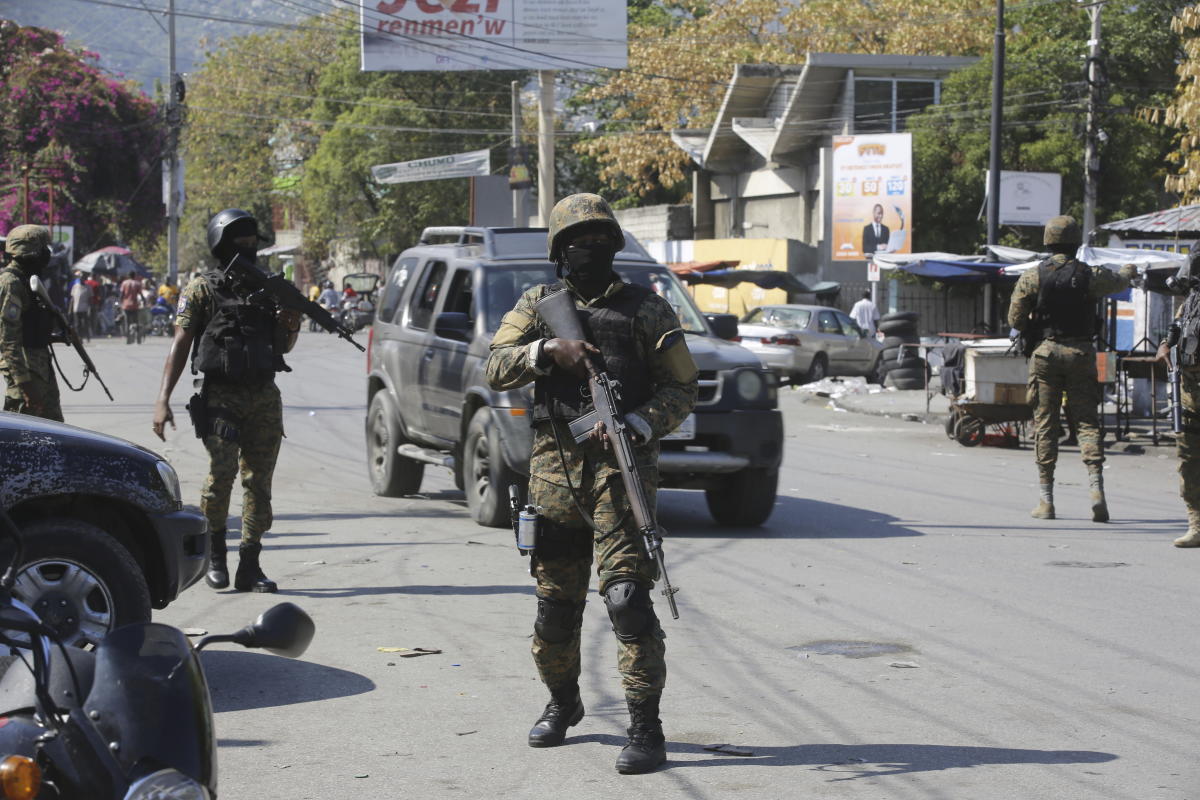U.S. Embassy in Haiti Receives Reinforcements Amid Worsening Gang Attacks
PORT-AU-PRINCE, Haiti – The U.S. military has deployed forces to reinforce and enhance security at the U.S. Embassy in Haiti, allowing nonessential personnel to evacuate.
Helicopters Fly in Forces to Boost Embassy Security
The U.S. Southern Command announced on Sunday that military aircraft, in the form of helicopters, have flown to the embassy compound. The operation aimed to bolster the security of the embassy amid worsening gang attacks in the country. The Southern Command made it clear that no Haitians were onboard the military aircraft, thereby discrediting any speculations about senior government officials’ potential departure.
Neighborhood Around Embassy Controlled by Gangs
The surrounding area of the U.S. Embassy in Port-au-Prince, the Haitian capital, is predominantly controlled by various gangs operating in the region.
According to the Southcom statement, “This airlift of personnel into and out of the Embassy is consistent with our standard practice for Embassy security augmentation worldwide, and no Haitians were on board the military aircraft.”
Nonessential Personnel Already Departed
The embassy had already instructed nonessential staff, including the families of diplomats, to depart in July. The recent personnel transfer could be attributed to the regular rotation of staff.
While the United States continues its efforts to assist the Haitian police and organize a United Nations-authorized security deployment, progress in these endeavors has so far been unsuccessful.
Prime Minister Henry’s Foreign Travel and Challenges
Ariel Henry, Haiti’s prime minister, recently traveled to Kenya to advocate for a U.N.-backed police force to combat the escalating gang violence. However, in January, a Kenyan court ruled such a deployment would be unconstitutional.
Due to the calls for his resignation and demands for a transitional council, Prime Minister Henry is still unable to return home. His attempted flight to the Dominican Republic was thwarted, as the Dominican President’s office issued a statement stating that Henry is not welcome in the country, citing safety reasons.
Caricom Emergency Meeting
In response to Haiti’s dire situation, Caribbean leaders have called for an emergency meeting in Jamaica on Monday. They have invited countries such as the United States, France, Canada, the United Nations, and Brazil to participate in a discussion to address the ongoing crisis.
The Caricom regional trade bloc has been persistently urging political actors in Haiti to unite and form a transitional government. However, the stakeholders have not yet reached a consensus, and the situation on the ground remains highly concerning to regional leaders.
Path to Restoring the Order
The international community has been seeking a foreign armed force to combat gang violence and has implored Prime Minister Henry to establish a power-sharing consensus government. While Henry previously committed to holding a general election by mid-2025, the lack of progress in the formation of a transitional government has intensified demands for his immediate resignation.
A neurosurgeon by profession, Ariel Henry assumed the role of prime minister following the assassination of President Jovenel Moise in July 2021. His attendance at the Caricom meeting in Jamaica remains uncertain.
Retaking the Streets
In Port-au-Prince, the police, accompanied by palace guards, have launched efforts to regain control of the streets after gangs launched significant attacks on multiple police stations. These actions have resulted in sporadic shootings, causing further distress to the population already grappling with the security crisis.
The relentless attacks by gangs have paralyzed the country, leading to dwindling supplies of essential goods. Haitian officials have extended the state of emergency and imposed a nightly curfew, while gangs continue to target vital state institutions.
Ordinary Haitians, displaced by the ongoing violence, find themselves seeking refuge within government buildings. While the state attempts to secure these institutions, the essential needs of the people and their demands for shelter must also be addressed.
Expressing her desperation, an anonymous woman stated, “We are the ones who pay taxes, and we need to have shelter.” Another resident of Port-au-Prince highlighted the lack of defense for civilians, stating, “They (the gangs) came with big guns. We have no guns and we cannot defend ourselves. All of us, the children are suffering.”

/data/photo/2024/03/10/65ed973b7fa13.jpg?resize=150%2C150&ssl=1)